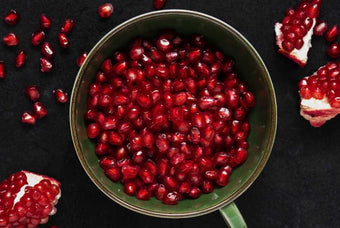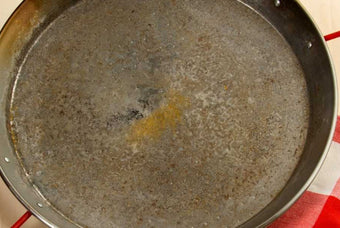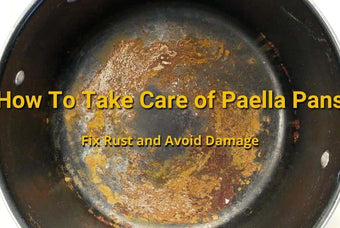If have been grilling outside for a while, then you are familiar with the most annoying part of using one- cleaning up afterwards. Unlike using pots and pans in an oven or on a burner, grills require more cleaning. It would be like you cleaning your oven every time you use it and cooking directly on the grills. All the oils and fats would cause a mess! Learning how to clean a grill the right way can save you a lot of trouble and keep your cooking equipment in peak shape.
Whether you grill steak, are a BBQ fan, or only grill salmon or asparagus, it does not matter. Eventually, you will need to clean your grill. Outdoor grills differ from your smaller indoor electric grills. Not only are they larger, the use of gas or charcoal for heat results in more soot. So, for this article, we will focus on larger outdoor grills like Traeger or Blackstone grills.
What to Use and How to Clean a Grill
Your first step to cleaning a grill is going to be getting the right tools for the job. Or, in most cases, the right tool. For slightly dirty grates, you could get away with a sponge or scrub pad after a light soaking. For most cases, however, you will want a metal wired brush. Some other things you will need though is your choice of grill cleaning product or hot water and soap. Be careful not to use scalding water to avoid injuring yourself. You also want to avoid cheaply made brushes or those without handles. You will want to get into crevices and hard to reach areas. Besides a metal wire brush, you will want:
- A couple buckets
- Scraper / putty knife / steel wire brush
- Soft bristle brush
- Hot water and dish soap
- Some rags or paper towels
- Stainless steel polish (for exterior of steel grills only)
Keeping your grill clean only requires a couple of things. If you own a ceramic grill or one that does not have a stainless-steel exterior, then you can skip the stainless-steel polish altogether.
The best instrument for cleaning a barbecue is a wire brush. They are perfect for scouring, can get into sharp corners and go easy on your wallet. Keep in mind though, unstable fibers have a chance of winding up in your food.
Avoid Harmful Chemicals
You should clean the grill grinds each time you barbecue. Stuck-on pieces will consume and make your food stick. Also, remember to clean the opposite side of the grate. Avoid using harmful chemicals to get rid of grime easier. While it may help clean easier, removing toxic chemicals and residue may not be as easy.
If you barbecue a ton of high-fat foods like hotdogs, sausages, and burgers then you may encounter oil development on the dividers of your grill. Wipe off the oil habitually to shield it from touching off. Do not spray toxic degreasers to clean internal areas.
Grill Cleaning Basics
At whatever point your flame broil is not being used, it ought to be secured. Barbecue covers last around four years and can keep dampness from sitting on the grill. No dampness implies no rust—the most well-known enemy of barbecues. It should not take more than a wet towel and some soap to clean a cover well enough. However, the basics of cleaning a grill lie in the grill grates and inside area where oils collect or drip into. The basic steps of cleaning a grill include:
- Pre-scrub or burn
- Soak grill grates
- Clean inside
- Scrub grates cleans
- Reassemble
- Finish by cleaning exterior and polishing
Before taking care of your grill for the winter, give it a start to finish cleaning. Heating up the grill every now-and-then will reduce moisture build up and slow rust. However, this will not magically keep your grill clean forever. You should still go through the basic cleaning steps when you notice build-up or have not cleaned your grates in a while.
Step 1: Pre-scrub or burn residual food

Your first step, and sometimes the hardest when done improperly, is the initial scrub. Skipping the initial scrub and soaking your grills can sometimes backfire. If the grease and burnt on material is too much, soaking may not reach deep enough. This means even after soaking for hours, you can struggle to get rid of the grime. A great way to make it easier to clean grills is to heat it up beforehand. The heat will burn off excess grease and make dried on materials easier to remove. Just remember to let your grill grates cool down. Afterwards, you can scrub off the ashes and leftover bits of matter. The goal is not to completely clean the grate, but to clean off anything that does not require soaking.
Step 2: Soak Grill Grates
A tiresome part of cleaning a grill is the soaking process. If you are impatient, you may find yourself doing more scrubbing than you thought. The best way to loosen up all the grime is soaking your grill grates overnight. Your wire brush should have nearly no trouble cutting through the fats and oils stuck on your grill grates after a long soak.
Step 3: Clean Inside
The step that requires the most elbow grease is most likely going to be the interior cleaning step. Unlike the grates, which you can easily pull off and soak, the interior is not as easy. Many grills do not have easily removable bodies and even less are easy to soak. They can be large, heavy, and will not fit in an average sized bucket. For insides, a long wire brush and a soft brush become your best friends. You can scrape off a lot of grim with the rough wire brush and then brush it out your grill using the softer bristle brush. If you have a drip pan, this is the time to remove it and place it in soapy water to soak.
Step 4: Scrub Clean
Now that the inside is clean and your grill grate has been soaking, you are ready to scrub it clean. The rest of the gunk should come off without too much effort using a metal scrubbing brush. Rinse off clean when done and do the same for your drip pan, if you have one. Wipe down your grates and other greasy areas with your rags or paper towels.
Step 5: Reassemble
Now comes the easy part: putting your pieces back together. Put your grill grate back in place and make sure you put your drip pan back. If you still feel like the grate or inside is dirty, you can repeat the steps until everything it spotless.
Step 6: Finishing Touches
There are plenty of exterior parts of your grill that can grow dirty. With everything inside clean, you can now take the time to clean the outside. Any non-toxic surface cleaner should do the trick. If your grill exterior is stainless steel, then you can finish your cleaning with some stainless-steel polish to get that brand-new look.
How Often Should You Clean Your Grill?

Of course, the amount of cleaning and the frequency of cleaning will depend on how often you cook and what you grill with. Charcoal grills will always grow dirtier than your propane or natural gas. Without proper care and cleaning, you can expect your interior and grates to blacken and build up ash and leftover fats and oils. You will want to do a deep cleaning at least 1 to 2 times a year. If you use your grill frequently, then you may want to clean it every couple of months. You want to avoid waiting so long insects or animals are attracted to your grill or the leftover oils affect flavor.
Not only can this affect the look of your grill, but it can even change the taste of food. Old oils and fat heating can permeate into other foods during grilling. Let us not forget the worst-case scenario, bugs making their home in your cooking equipment! If you take proper care of your grill, then it can last you decades. Taking care of your grilling equipment means keeping it clean, using proper care techniques, and keeping it safe when not being used. Here at Machika, we believe in treating your cooking equipment right to ensure you get the best flavors and dishes to share with your family and friends.
Read More and Shop for Cookware at Machika.com Today!
Life is more than just making great dishes and meals. It is about sharing your creation with your family, friends, followers online, and others interested in food around the world. You can visit the Machika.com blog to read more interesting articles on cooking hacks, traditional recipes, and more. At Machika, everyone is invited!





Great tips. Had ants in my grill from not cleaning it well enough!